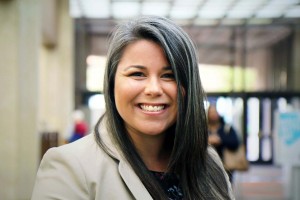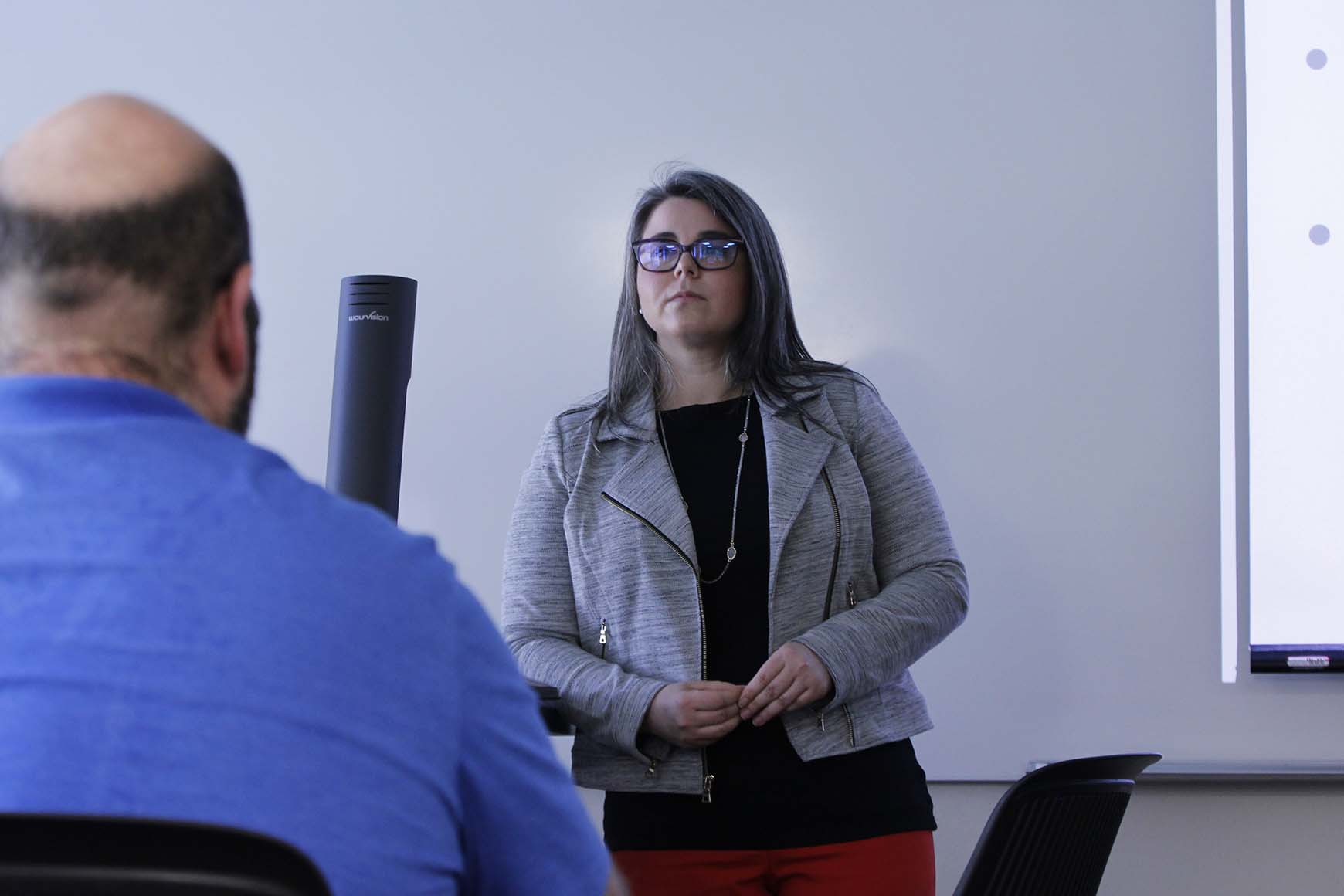Meet the Talents is an occasional series dedicated to introducing experts from around the UT Libraries. This month’s focus is Porcia Vaughn, Liaison Librarian for Biosciences, who joined the Libraries in late 2016. Porcia earned her MS at the University of North Texas and previously worked at the University of Houston Libraries and the Fondren at SMU.
How did you get here, and what do you do?

Porcia Vaugh: I’ve wanted to be a librarian since middle school and have always had a love of science. It was in 9th grade that I found out that I could blend my love of libraries with my science passion to become a science librarian. So, I made the plan to get a degree in biological sciences with a minor in health studies to then proceed to graduate school to obtain a MS in Information Sciences focusing on Health Informatics. And here I am today with the ability to connect faculty, students and staff at a major R01 research institution to library services… I’m definitely living my dream!
I’ve made my way to UT to support the biological sciences programs, including Integrative Biology, Molecular Biosciences, Neurology, Biomedical Engineering and other bioscience related programs. I provide research, publication, curriculum and instruction support to the biosciences programs and disciplines here on the UT Austin campus.
Services I provide for UT researchers include, but are not limited to, locating grants, assisting with formal literature review searches, identifying data sets, identifying best practices for publishing and making one’s work discoverable, and assistance with data management principles and practices for compliance in the biological and life science disciplines. The success to UT’s research enterprise is important to me and the role of the library to be involved with identifying specialized needs and seeking innovative solutions to those needs is always a priority of mine when serving our researchers.
In addition to researcher support, I offer strategic library services to the biosciences undergraduate curriculum by providing hands-on training for students regarding Information Literacy — the proper ways to find and use biological and life science information tools and resources appropriately to be successful as a student and future biological researcher. I assist instructor or teaching assistants with instructional design around course assignments and program learning outcomes using library resources or other open educational resources.
Where do you think the love of science comes from? Genetic, organic or other?
PV: My love of science has always been focused on biological and life sciences. Growing up in an area with a culture, Hispanic & Native American in New Mexico, I grew to love and respect the environment and the living organisms within the environment. The love was then fostered by fantastic middle school science teachers and librarians who supplied the great natural sciences books to feed my interest.
I do really love every aspect of trying to understand living organisms — physical structure, chemical composition, function, and development of living organisms. My undergraduate research focused on parasitology and I loved studying those little and sometimes gross organisms but they are so important to how we evolve in our environment.
I know from talk around the watercooler that you have a bit of a competitive streak (esp. sports). Where do you think that comes from, and do you see those aspects of yourself in your work?
PV: Yeah, I do have a little bit of a competitive streak. I’ve played sports all my life, my dad is an athletic coach who coached my varsity soccer team and my entire family plays sports. I still am very active in sports playing softball and tennis a couple nights a week. I feel that my competitiveness drives me in my daily work, knowing that I can always do better and provide more adaptive services to build others up.
Is there some aspect of UT’s particular research in the sciences that drew you here? Or have you discovered some interesting research that you weren’t aware of?
PV: I was drawn to UT because it is a Tier 1 research institution and the library is in the top 15 on the ARL Library Index Ranking. There are many exciting research opportunities that are occurring here and I can name a few:
- The Biodiversity Center’s growth and change, including adding the new Falcon Cam, https://biodiversity.utexas.edu/resources/falcon-cam.
- Collaborating with Dr. Tessa Soloman-Lane and group around Public Engagement of Science through BEACON, a NSF Center for the Study of Evolution in Action, https://guides.lib.utexas.edu/BEACONworkshop.
- The Hofmann Lab, https://cichlid.biosci.utexas.edu/, working on understanding complex social behaviors.
- The Harris Lab and the Waggoner Center for Alcohol & Addiction Research, https://waggonercenter.utexas.edu/, focusing on molecular mechanisms responsible for alcohol and drug actions.
- The Meyers Lab, http://www.bio.utexas.edu/research/meyers/, who is researching mathematical epidemiology looking at the spread of infectious disease.
- Bioinformatics and Computational Biology program that has a National Library of Medicine training grant, https://www.cs.utexas.edu/research/areas/bioinformatics-and-computational-biology.
But, there are so many more research opportunities to call attention to that excite me!
What sort of impact do you think librarians should have on research — what role do you want to play in the research life cycle?
PV: I think librarians have a huge role to play in research and any part of the campus enterprise, including teaching and learning the practices of the research life cycle. I assist and am always looking to collaborate with researchers at any stage of the research life cycle. I find it an important part of the biosciences services and tools for researchers for the librarian to participate in project scoping, identifying and tracking grant and funding opportunities, assist with building research data management practices, following through to disseminating, archiving and preserving researchers scholarship and communicating their research to the general public.
And how do you see your role in collection development and management? How does that aspect of your work differ from a librarian in a discipline like the humanities?
PV: I see collection development and management in two categories, course and curriculum needs and the gathering of faculty and graduate research and instructional resources. I identify materials that will enhance instruction and give students fundamental knowledge to enhance their own research priorities as they move forward in their education; this includes identifying Open Educational Resources for faculty and teaching assistants to use in course instruction. Bioscience collections can include textbooks or traditional print books, but also include a wide variety of software (i.e. Mapping and GIS) or electronic resources (i.e. lab protocols and journals) to improve understanding of research methodologies. It is important to work closely with faculty and students to make sure that we are providing resources that make them successful while they are here at UT Austin.
The Digital Humanities questions is a different story unrelated to collection development in my subject areas. DH is the adoption of computational methodologies and digital technologies for humanities research; whereas, in the STEM disciplines have been using data-driven approaches and technology for centuries. Differences between approaches include the types and quantity of data that is collected along with differing approaches to dissemination and preservation of research and scholarship.
You seem to have a pretty full plate in the present. What do you think your job will look like in ten years, and where would you like to be professionally?
PV: Looking toward the future, librarians will likely be further embedded in a role that supports and enhances research across the university and globally. Libraries will continue to look for ways to benchmark library successes within the research enterprise while strengthening our connections to curriculum and instruction. Academic libraries will also play a large role in community engagement and translation of scholarly research to those beyond the university bubble.
Professionally, I’m aiming to be in a management role that will advance the philosophy and methodologies of library programing and services that directly connect to the academic mission and success stories.
What gives you the greatest sense of accomplishment in life?
PV: Doing what I love gives me a sense of accomplishment. Every morning I get to wake up and have the privilege of working with amazing people and if I can help anyone of them advance their personal or professional goals by providing support makes me happy.

